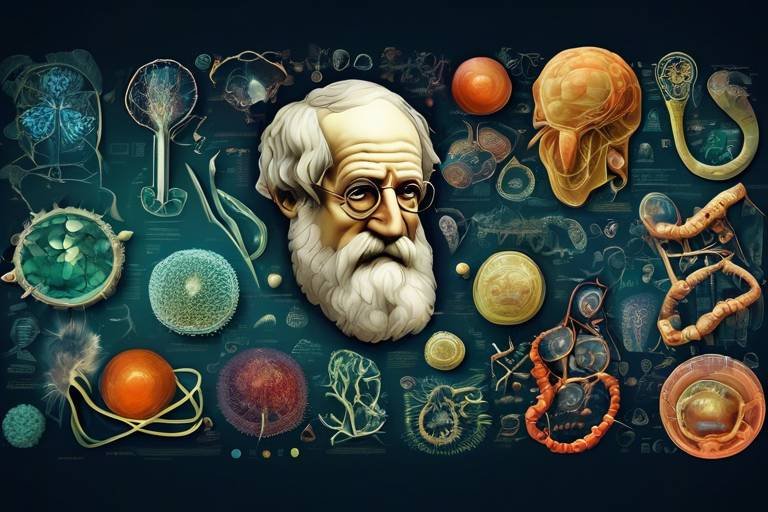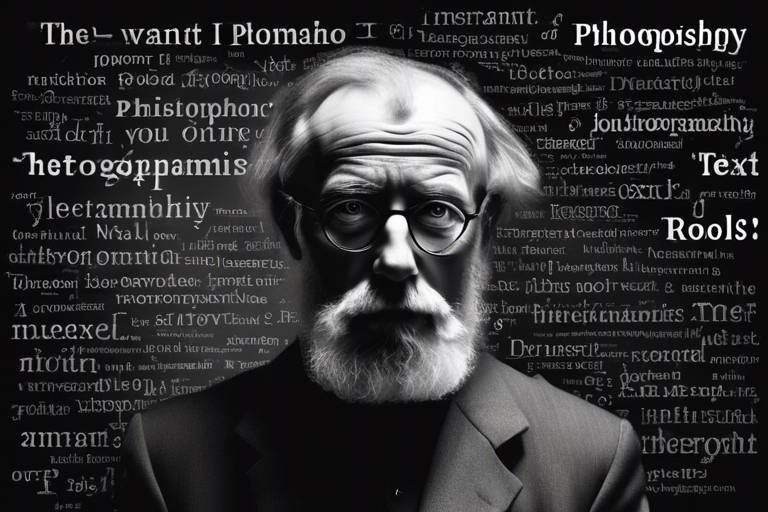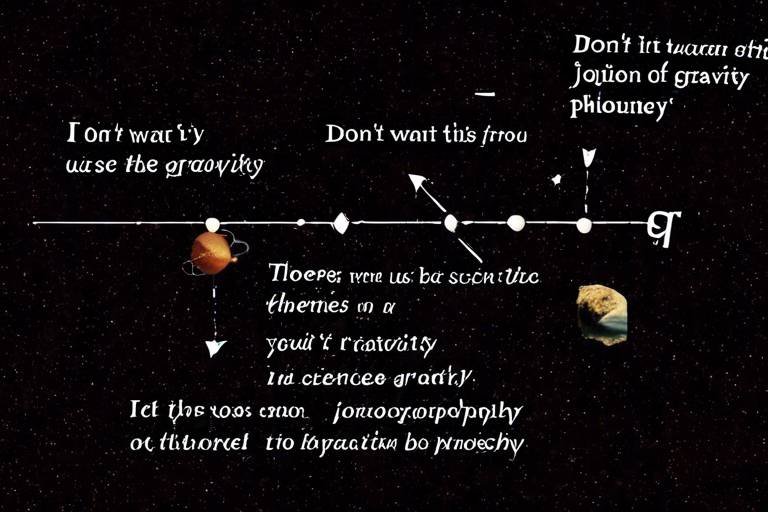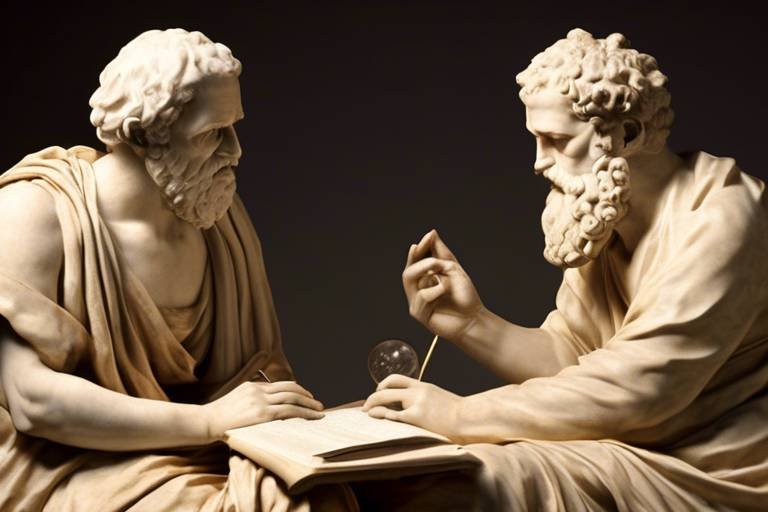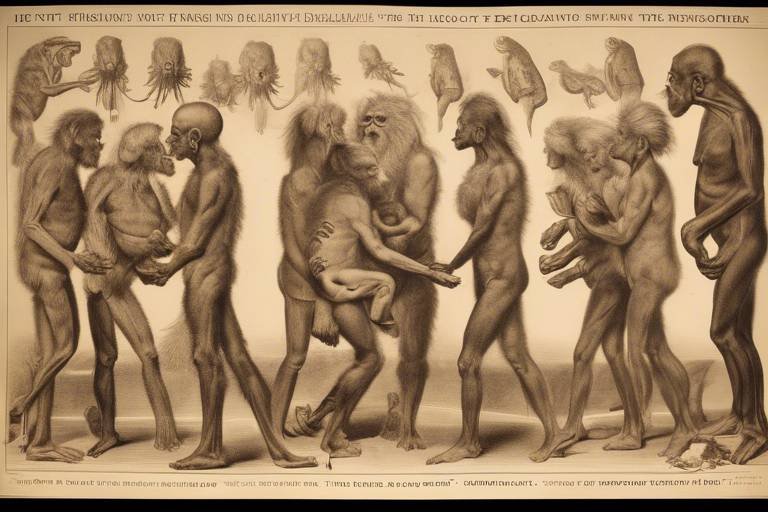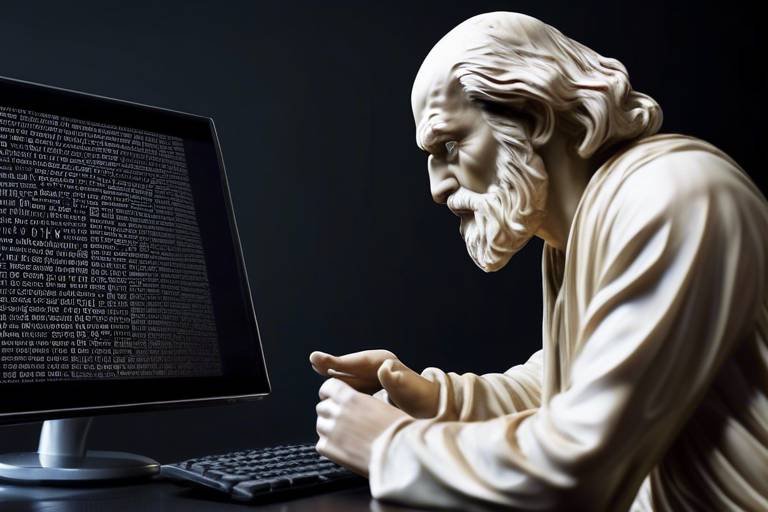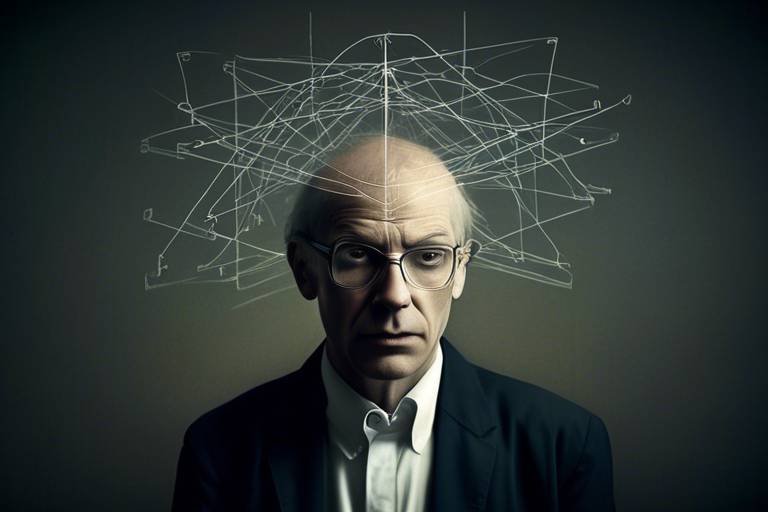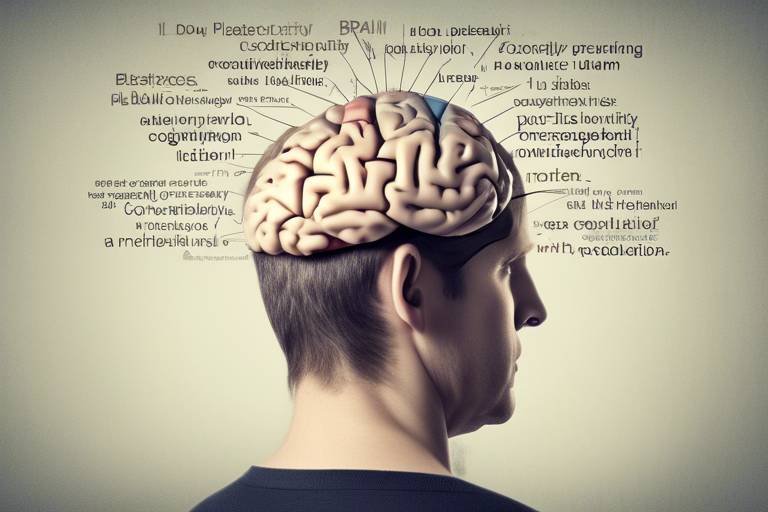Does the Uncertainty Principle Challenge Deterministic Philosophy?
The Uncertainty Principle, a cornerstone of quantum mechanics, has sparked a fascinating debate about the very nature of reality and our understanding of it. At its core, this principle suggests that there are fundamental limits to what we can know about the properties of particles, particularly when it comes to their position and momentum. Imagine trying to take a photograph of a moving car; the faster it goes, the blurrier the picture gets. This analogy captures the essence of the Uncertainty Principle: the more precisely we try to measure one property, the less precisely we can know another. This revelation shakes the foundations of deterministic philosophy, which posits that every event or state is determined by preceding events, creating a predictable universe. So, does this principle really challenge the deterministic worldview? Let’s delve deeper.
Historically, the deterministic perspective has been a dominant force in shaping scientific inquiry. Thinkers like Isaac Newton and Pierre-Simon Laplace championed the idea that if we knew the position and velocity of every particle in the universe, we could predict the future with absolute certainty. This deterministic view painted a picture of a clockwork universe, where every tick and tock was predetermined. However, the advent of quantum mechanics, with its inherent unpredictability, has caused many to reconsider this long-held belief.
As we explore the implications of the Uncertainty Principle, we find ourselves at a crossroads between determinism and indeterminism. On one hand, determinism offers a comforting narrative of order and predictability. On the other, quantum mechanics introduces a chaotic dance of probabilities where certain outcomes are fundamentally unpredictable. This leads us to question: can true randomness exist in a universe governed by laws? Or does the Uncertainty Principle merely highlight our current limitations in understanding the complexities of the universe? These questions are not just academic; they touch on the very fabric of reality itself.
In light of these discussions, it becomes crucial to examine how philosophers have reacted to the challenges posed by quantum mechanics. Some have sought to reconcile the apparent contradictions between deterministic views and the indeterminacy of quantum phenomena. Others argue that the implications of quantum mechanics extend beyond physics, influencing our notions of free will and human agency. If the universe is not as predictable as once thought, what does that mean for our choices and decisions?
As we navigate through this philosophical maze, we can see emerging frameworks that attempt to integrate quantum mechanics with deterministic philosophy. These new paradigms encourage a re-evaluation of traditional beliefs, suggesting that perhaps the universe is neither entirely deterministic nor entirely random, but a complex interplay of both. This perspective invites us to embrace uncertainty, not as a flaw in our understanding, but as an essential feature of the cosmos.
- What is the Uncertainty Principle?
The Uncertainty Principle, formulated by Werner Heisenberg, states that certain pairs of physical properties, like position and momentum, cannot be simultaneously known to arbitrary precision. - How does the Uncertainty Principle affect determinism?
The principle introduces a level of unpredictability that challenges the deterministic view that all events are predetermined and can be predicted if enough information is available. - Can determinism and indeterminism coexist?
Some emerging philosophical frameworks suggest that both can coexist, proposing a universe that is a complex interplay of deterministic laws and probabilistic events.

Understanding the Uncertainty Principle
The Uncertainty Principle, introduced by the brilliant physicist Werner Heisenberg in 1927, is a cornerstone of quantum mechanics that fundamentally reshapes our understanding of the universe. At its core, this principle asserts that there are inherent limitations to how precisely we can know certain pairs of physical properties of a particle, such as its position and momentum. Imagine trying to take a photograph of a moving car; if you adjust your camera to capture the car's position perfectly, you might miss the exact moment of its speed. This analogy captures the essence of the Uncertainty Principle, where enhancing the accuracy of one measurement distorts the other.
Heisenberg's groundbreaking idea challenges the classical notion that we can measure and predict the behavior of particles with absolute certainty. Instead, it introduces a level of indeterminacy into our understanding of reality. The principle is often expressed mathematically as:
| Property | Formula |
|---|---|
| Position (Δx) | Δx ≥ ħ / (2Δp) |
| Momentum (Δp) | Δp ≥ ħ / (2Δx) |
Here, ħ (h-bar) represents the reduced Planck's constant, a fundamental quantity in quantum mechanics. The equations illustrate that the more accurately we know a particle's position (Δx), the less accurately we can know its momentum (Δp), and vice versa. This interplay between position and momentum is not just a limitation of our measurement tools but a fundamental property of nature itself.
The implications of the Uncertainty Principle extend far beyond mere physics; they provoke profound philosophical questions about the nature of reality and our ability to understand it. If we cannot know both the position and momentum of a particle with precision, what does that say about our understanding of the universe? Are we merely observers in a world governed by probabilities rather than certainties?
In practical terms, the Uncertainty Principle means that at the quantum level, the universe is not as predictable as we once thought. While classical physics operates on the assumption that given enough information, we can forecast future events with confidence, quantum mechanics reveals a more chaotic and unpredictable reality. This unpredictability has led scientists to rethink not only the mechanics of particles but also the very fabric of reality itself.
As we delve deeper into the implications of the Uncertainty Principle, it's crucial to recognize its role in shaping modern scientific inquiry. It encourages a shift from deterministic models to probabilistic frameworks, prompting researchers to embrace uncertainty as a fundamental aspect of the quantum world. In this light, the Uncertainty Principle serves as a reminder that our understanding of reality is continually evolving, challenging us to rethink our assumptions and embrace a more nuanced view of the universe.
- What is the Uncertainty Principle? The Uncertainty Principle is a fundamental concept in quantum mechanics that states there are limits to how precisely we can know certain pairs of physical properties of a particle.
- Who formulated the Uncertainty Principle? The principle was formulated by physicist Werner Heisenberg in 1927.
- How does the Uncertainty Principle affect our understanding of reality? It challenges deterministic views by introducing inherent unpredictability at the quantum level, suggesting that not all events are causally determined.

Determinism vs. Indeterminism
The philosophical debate between determinism and indeterminism is as old as philosophy itself, touching upon the very fabric of reality and our understanding of the universe. At its core, determinism posits that every event or state of affairs, including every human action, is the outcome of preceding events in accordance with the natural laws. Imagine a giant cosmic clock, where every gear and cog is precisely aligned to tick in unison, leading to a predictable outcome. This perspective was largely shaped by classical physics, where the laws governing motion and force seemed to suggest that if we knew enough about the present, we could predict the future with absolute certainty.
On the flip side, indeterminism introduces a level of unpredictability into the equation, particularly highlighted by the realm of quantum mechanics. Think of it as a game of chance, where the outcome isn’t just influenced by previous rolls of the dice but is also inherently unpredictable. This notion challenges the deterministic view, suggesting that not all events are causally determined. In essence, indeterminism allows for the possibility that some events occur randomly, without being predetermined by prior states. This shift in understanding has profound implications, not only for science but also for our conception of free will and moral responsibility.
To better understand the distinctions between these two philosophies, consider the following table:
| Aspect | Determinism | Indeterminism |
|---|---|---|
| Definition | All events are determined by preceding conditions and natural laws. | Some events are not determined and can occur randomly. |
| Philosophical Implications | Supports the idea of a predictable universe. | Challenges the notion of predictability and introduces randomness. |
| Relation to Free Will | Suggests limited or no free will. | Allows for the possibility of free will through randomness. |
As we delve deeper into this philosophical conundrum, we find ourselves grappling with questions that have puzzled thinkers for centuries. Can we truly claim to have free will if our choices are merely the product of prior conditions? Or does the randomness introduced by quantum mechanics open up new avenues for human agency? These questions are not just abstract musings; they have real-world implications for how we view ourselves and our place in the universe.
In summary, the clash between determinism and indeterminism is a vibrant area of philosophical inquiry, reflecting our evolving understanding of the universe. As we continue to explore the implications of quantum mechanics, we may find that the answers to these age-old questions are more complex than we ever imagined.
- What is determinism? Determinism is the philosophical view that all events, including human actions, are determined by preceding events in accordance with natural laws.
- What is indeterminism? Indeterminism is the idea that not all events are causally determined, allowing for randomness and unpredictability.
- How does quantum mechanics relate to these concepts? Quantum mechanics introduces principles that suggest some events at the quantum level occur randomly, challenging deterministic views.
- What are the implications for free will? The debate raises questions about whether human agency can exist in a deterministic framework or if randomness allows for true free will.

Historical Context of Deterministic Philosophy
The concept of determinism has a rich and intriguing history that stretches back to ancient philosophical traditions. It is the belief that every event or state of affairs, including human actions, is determined by preceding events in accordance with the natural laws. This view gained significant traction during the Enlightenment, a period characterized by an emphasis on reason, science, and empirical evidence. Thinkers like René Descartes and Baruch Spinoza laid the groundwork for deterministic philosophy by proposing that the universe operates like a vast machine governed by mathematical laws.
As we moved into the 17th and 18th centuries, the emergence of classical mechanics, particularly through the work of Isaac Newton, solidified the deterministic worldview. Newton's laws of motion and universal gravitation suggested that, given initial conditions, one could predict the future state of any physical system. This predictability became the cornerstone of scientific inquiry, leading to the belief that if we had complete knowledge of the present, we could foresee the future. The idea was so compelling that it influenced not only science but also the broader cultural and philosophical thought of the time.
However, the deterministic philosophy was not without its critics. As the 19th century progressed, various philosophical movements began to question the absoluteness of determinism. The rise of Romanticism and existentialist thought introduced ideas of free will and individual agency, challenging the notion that human behavior could be entirely predicted by prior states. This philosophical tension set the stage for a deeper exploration of determinism, especially in light of the emerging field of quantum mechanics.
To better understand the evolution of deterministic thought, it's useful to highlight some key figures and their contributions:
| Philosopher | Contribution |
|---|---|
| René Descartes | Introduced mechanistic views of the universe, emphasizing reason and mathematical laws. |
| Isaac Newton | Formulated laws of motion and gravitation, reinforcing the predictability of physical systems. |
| Baruch Spinoza | Proposed a deterministic universe where everything follows from the necessity of the divine nature. |
In summary, the historical context of deterministic philosophy reveals a complex interplay between scientific discovery and philosophical inquiry. While classical mechanics provided a robust framework for understanding the universe, the growing recognition of human agency and the limitations of predictability began to challenge the deterministic narrative. This ongoing dialogue between determinism and indeterminism continues to shape our understanding of reality, especially as we delve into the implications of quantum mechanics.
- What is the Uncertainty Principle? The Uncertainty Principle, formulated by Werner Heisenberg, states that certain pairs of physical properties, like position and momentum, cannot be simultaneously known with arbitrary precision.
- How does determinism differ from indeterminism? Determinism posits that every event is determined by preceding events, while indeterminism suggests that some events are not causally determined, especially in quantum contexts.
- What impact did classical physics have on philosophy? Classical physics established a deterministic framework that influenced various scientific disciplines and philosophical perspectives until challenged by quantum discoveries.
- Can free will exist in a deterministic universe? This is a contentious issue; some argue that if all actions are predetermined, true free will cannot exist, while others believe that free will can coexist with determinism.

Key Figures in Determinism
The concept of determinism has been shaped and influenced by several key figures throughout history, each contributing unique insights that have helped define the deterministic worldview. One of the most notable figures is Pierre-Simon Laplace, a French mathematician and astronomer who famously articulated the idea of a "Laplace's Demon." This hypothetical entity could predict the future if it knew the precise location and momentum of every particle in the universe at a given moment. Laplace's assertion that the universe operates like a vast machine, governed by immutable laws, laid a foundational stone for deterministic philosophy.
Another monumental figure in this realm is Isaac Newton, whose laws of motion and universal gravitation provided a mathematical framework that reinforced the deterministic view of the universe. Newton's work suggested that, given enough information, one could predict the future state of any physical system. His contributions were pivotal in establishing a scientific approach that emphasized predictability and order, reinforcing the belief that the universe is a predictable entity governed by natural laws.
Furthermore, the influence of David Hume cannot be overlooked. Although Hume is often associated with skepticism, his exploration of causality and human understanding contributed to the broader debates surrounding determinism. He questioned the notion of causation and whether our understanding of it could be reconciled with the deterministic framework. This philosophical inquiry opened doors for later discussions about free will and the nature of human agency.
In addition to these historical figures, the deterministic outlook was further solidified by the work of Gottfried Wilhelm Leibniz, who introduced the idea of pre-established harmony. According to Leibniz, the universe operates under a perfect and predetermined order, where every event is part of a grand design. His philosophical musings offered a different perspective on determinism, intertwining metaphysics with the natural sciences.
To summarize, the key figures in determinism have significantly shaped our understanding of the universe and our place within it. Their ideas have created a framework that views reality as a predictable and ordered system, where every event is causally connected. As we delve deeper into the implications of quantum mechanics, these foundational ideas continue to challenge and inspire new philosophical inquiries.
- What is determinism? Determinism is the philosophical belief that all events, including moral choices, are determined completely by previously existing causes.
- Who is considered the father of determinism? While there are many contributors, Pierre-Simon Laplace is often credited with popularizing the concept through his work in mathematics and astronomy.
- How does quantum mechanics challenge determinism? Quantum mechanics introduces elements of unpredictability and randomness, suggesting that not all events can be predicted with certainty, contradicting classical deterministic views.
- Can determinism and free will coexist? This is a hotly debated topic in philosophy, with various perspectives attempting to reconcile the two concepts, particularly in light of quantum mechanics.

Impact of Classical Physics
The legacy of classical physics is monumental, serving as the bedrock upon which much of modern science is built. Before the dawn of quantum mechanics, the world was largely seen through a deterministic lens, where every event was a predictable outcome of preceding conditions. This perspective was championed by the likes of Isaac Newton, whose laws of motion suggested that if one knew the initial conditions of a system, one could predict its future states with absolute certainty. Imagine a perfectly functioning clock; if you understand the mechanics, you can foresee every tick and tock without fail. This analogy captures the essence of classical physics—predictability and order.
Classical physics established a framework that not only influenced the natural sciences but also permeated philosophical thought. The notion that the universe operates like a grand machine, where every part interacts in a predictable manner, led to a belief in a rational, ordered reality. This deterministic view shaped various disciplines, from biology to economics, suggesting that everything from the motion of planets to human behavior could ultimately be understood through cause and effect. However, this certainty began to unravel with the advent of quantum mechanics, which introduced a level of unpredictability that classical physics could not accommodate.
One of the most significant impacts of classical physics was the establishment of a scientific method grounded in observation and experimentation. Scientists, inspired by the deterministic laws of nature, sought to uncover the underlying principles governing the universe. This quest for knowledge led to remarkable advancements in technology and a deeper understanding of the natural world. However, as quantum mechanics emerged, it became clear that the deterministic framework of classical physics was not as universally applicable as once thought. The unpredictability introduced by quantum phenomena challenged the very foundation of scientific inquiry, forcing a reevaluation of how we understand reality.
To illustrate the shift from classical to quantum thinking, consider the following table that contrasts key principles of both frameworks:
| Aspect | Classical Physics | Quantum Mechanics |
|---|---|---|
| Nature of Reality | Deterministic | Indeterministic |
| Predictability | High | Low |
| Measurement Impact | None | Significant |
| Particle Behavior | Well-defined paths | Probabilistic distributions |
As we delve deeper into the implications of classical physics, it becomes apparent that while it laid the groundwork for scientific exploration, it also set the stage for the revolutionary ideas that would follow. The transition from a deterministic worldview to one that embraces uncertainty has profound implications for our understanding of the universe, urging us to reconsider not only the nature of reality but also the philosophical underpinnings of free will and agency.
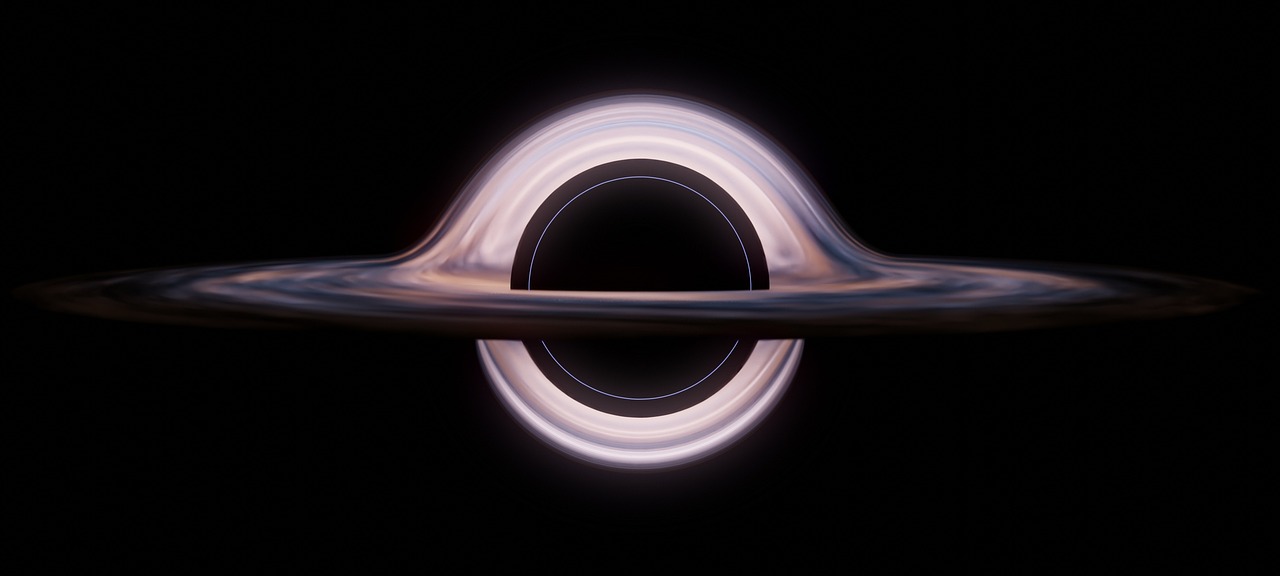
Quantum Mechanics and Its Implications
Quantum mechanics is not just a set of complex equations or a series of abstract theories; it fundamentally reshapes our understanding of reality. At its core, quantum mechanics introduces the idea that the universe operates in a manner that is inherently unpredictable. This unpredictability stands in stark contrast to the deterministic views upheld by classical physics, where every event could, in principle, be predicted if one had complete knowledge of the initial conditions.
One of the most striking implications of quantum mechanics is encapsulated in the Uncertainty Principle, which asserts that certain pairs of physical properties, like position and momentum, cannot be simultaneously known to arbitrary precision. This principle doesn’t just suggest a limitation in our measurement capabilities; it indicates a fundamental property of nature itself. Imagine trying to pinpoint the exact location of a moving car while simultaneously measuring its speed. The more accurately you try to measure one, the less accurately you can measure the other. This isn’t merely a technical challenge; it’s a reflection of the intrinsic randomness of quantum phenomena.
Moreover, the implications extend beyond the realm of physics. They seep into our philosophical understanding of causality and predictability. In a deterministic universe, every event is the result of preceding causes, leading to a clear chain of events. However, quantum mechanics introduces a level of indeterminacy that challenges this notion. For instance, particles can exist in a state of superposition, meaning they can be in multiple states at once until observed. When we measure a quantum system, we force it into one of these states, but which state it will be is inherently unpredictable. This leads to fascinating questions about the nature of reality itself: Are we living in a world governed by strict laws, or are we part of a cosmic lottery where chance plays a significant role?
Furthermore, the implications of quantum mechanics extend into practical applications, influencing technologies such as quantum computing and quantum cryptography. These innovations leverage the principles of superposition and entanglement to create systems that are exponentially more powerful than their classical counterparts. For example, a quantum computer can process vast amounts of data simultaneously, solving complex problems that would take classical computers an impractical amount of time. This not only has potential applications in fields like cryptography and materials science but also raises ethical and philosophical questions about the future of technology and its impact on society.
In conclusion, quantum mechanics does not merely challenge our understanding of the physical universe; it invites us to reconsider the very foundations of our philosophical beliefs. The interplay between determinism and indeterminism, the role of the observer, and the implications for free will all emerge from the quantum realm. As we delve deeper into these questions, we find ourselves at the intersection of science and philosophy, where the mysteries of the universe continue to unfold.
- What is the Uncertainty Principle? The Uncertainty Principle, formulated by Werner Heisenberg, states that certain pairs of physical properties cannot both be known to arbitrary precision, fundamentally affecting our understanding of quantum mechanics.
- How does quantum mechanics challenge determinism? Quantum mechanics introduces elements of unpredictability and randomness, suggesting that not all events are predetermined, which contrasts sharply with the deterministic view of classical physics.
- What are some practical applications of quantum mechanics? Quantum mechanics has led to advancements in technologies such as quantum computing and quantum cryptography, which utilize its principles for enhanced performance and security.

Philosophical Reactions to Quantum Mechanics
The advent of quantum mechanics has been nothing short of revolutionary, shaking the very foundations of how we perceive reality and our place within it. Philosophers have grappled with the implications of quantum theory, especially the Uncertainty Principle, which suggests that at a fundamental level, the universe is not as predictable as once thought. This unpredictability has led to a fascinating debate about the nature of reality, causality, and free will. Many philosophers have found themselves at a crossroads, trying to reconcile classical deterministic views with the strange, often counterintuitive findings of quantum physics.
One of the most significant philosophical reactions to quantum mechanics is the challenge it poses to the idea of determinism. Traditionally, determinism held that every event or state of affairs, including every human decision and action, is the outcome of preceding events in accordance with the natural laws. However, with quantum mechanics introducing inherent randomness, the deterministic worldview faces serious scrutiny. This has led to a variety of philosophical responses, each attempting to make sense of this newfound uncertainty.
Some philosophers argue for a reconciliation of determinism and quantum mechanics. They propose that while quantum events may be indeterminate, this does not necessarily negate the existence of causal relationships at a macroscopic level. In this view, randomness at the quantum scale could coexist with a deterministic universe at larger scales, leading to a more nuanced understanding of causality. Others, however, embrace the implications of indeterminism, suggesting that the universe may be fundamentally unpredictable, which raises profound questions about free will and human agency.
As we delve deeper into these philosophical reactions, it's essential to consider the implications for our understanding of free will. If quantum events are inherently random, does that mean our choices are also influenced by chance? This question has sparked a lively debate among philosophers, with some arguing that randomness does not equate to freedom. Instead, they assert that true free will may involve a complex interplay between deterministic factors and random events, creating a tapestry of choice that is both influenced and free.
To further illustrate the diverse philosophical reactions, here’s a brief overview of some prominent responses:
- Compatibilism: This view suggests that free will can exist alongside determinism, arguing that human actions can be free even if they are determined by prior states.
- Libertarianism: Not to be confused with the political ideology, this philosophical stance posits that free will is incompatible with determinism, advocating for a version of free will that allows for genuine randomness.
- Hard Determinism: This position rejects free will altogether, arguing that all actions are determined by preceding causes, including quantum events.
These reactions highlight the rich tapestry of thought surrounding quantum mechanics and its implications. Philosophers continue to explore how these new scientific understandings can be integrated into our existing frameworks of knowledge. As we navigate this complex landscape, the conversation remains vibrant, with new ideas emerging that challenge our traditional beliefs about reality and existence.
In conclusion, the philosophical reactions to quantum mechanics are as varied as they are profound. The interplay between determinism and indeterminism raises essential questions about the nature of reality, our understanding of causality, and the very essence of free will. As we continue to explore these themes, one thing is clear: the dialogue between science and philosophy will only deepen, revealing new insights about the universe and our place within it.
1. What is the Uncertainty Principle?
The Uncertainty Principle, formulated by Werner Heisenberg, states that certain pairs of physical properties, like position and momentum, cannot be simultaneously known to arbitrary precision. This principle fundamentally alters our understanding of quantum mechanics.
2. How does quantum mechanics challenge determinism?
Quantum mechanics introduces inherent randomness at the quantum level, suggesting that not all events are causally determined. This challenges the classical deterministic view that all events are predetermined by prior states.
3. What are the implications of quantum mechanics for free will?
The randomness introduced by quantum mechanics raises questions about human agency. Some argue that if events are random, our choices may also be influenced by chance, complicating our understanding of free will.
4. Are there philosophical frameworks that reconcile determinism with quantum mechanics?
Yes, some philosophers advocate for compatibilism, suggesting that free will can coexist with determinism, while others propose that quantum randomness can exist alongside deterministic laws at larger scales.

Revisiting Free Will
When we dive into the perplexing waters of quantum mechanics, one of the most provocative questions that arises is the nature of free will. Traditionally, free will has been viewed as the ability to make choices that are not predetermined by prior states of the universe. However, the introduction of the Uncertainty Principle shakes the very foundation of this belief. If quantum events are fundamentally unpredictable, can we still assert that our decisions are free, or are they merely the result of random fluctuations at a subatomic level?
Consider this: if our choices are influenced by quantum randomness, does that mean we are not truly in control? It's like trying to steer a ship through stormy seas, where the winds and waves represent the unpredictable nature of quantum events. You may have the helm in your hands, but the forces of nature could just as easily throw you off course. This analogy highlights a crucial point: randomness does not equate to freedom. Just because we encounter uncertainty does not imply that we are liberated from the constraints of causality.
Philosophers have long debated the implications of free will in light of determinism and indeterminism. Some argue that if quantum mechanics introduces a degree of randomness, it could actually support a form of compatibilism, where free will and determinism coexist. In this view, our choices can still be considered free if they arise from our desires and intentions, even if those desires are influenced by unpredictable quantum events. Others, however, contend that true free will requires a level of predictability that quantum mechanics inherently undermines.
This dilemma leads us to a fascinating intersection of philosophy and science. As we grapple with these ideas, we must ask ourselves: What does it mean to be free? Is our sense of agency merely an illusion shaped by the complex interplay of deterministic and indeterministic factors? Or can we carve out a space for genuine choice amidst the chaos of quantum uncertainty?
To further explore these questions, let's consider some key perspectives:
- Libertarianism: This stance asserts that free will is incompatible with determinism. Proponents argue that for us to be truly free, our choices must not be predetermined by prior causes.
- Determinism: In contrast, determinists maintain that every event, including human actions, is determined by preceding events in accordance with the laws of nature.
- Compatibilism: This viewpoint suggests that free will and determinism are not mutually exclusive. It posits that we can have free will even in a deterministic framework, as long as our actions align with our motivations.
Ultimately, the debate over free will in the context of quantum mechanics does not yield easy answers. It challenges us to rethink our understanding of agency, responsibility, and the very nature of reality itself. As we continue to explore the mysteries of the quantum realm, we may find that the questions surrounding free will are as complex and layered as the universe we inhabit.
- What is the Uncertainty Principle? The Uncertainty Principle, formulated by Werner Heisenberg, states that certain pairs of physical properties cannot be simultaneously known to arbitrary precision, fundamentally altering our understanding of quantum mechanics.
- How does the Uncertainty Principle affect our understanding of free will? The Uncertainty Principle introduces an element of unpredictability in quantum events, leading to philosophical debates about whether this randomness undermines the concept of free will.
- Can free will coexist with determinism? Yes, some philosophical perspectives, like compatibilism, argue that free will can exist within a deterministic framework, as long as our actions align with our desires and intentions.

New Philosophical Paradigms
In the wake of quantum mechanics and the Uncertainty Principle, philosophers have found themselves at a crossroads, grappling with the implications of these revolutionary ideas for our understanding of reality. Traditional deterministic views, which painted a picture of a universe governed by predictable laws, now face challenges that demand new frameworks. These frameworks strive to reconcile the seemingly random nature of quantum events with our philosophical beliefs about causality and free will.
One emerging paradigm is known as quantum indeterminism. This perspective suggests that while some events may appear random, they are part of a broader tapestry of reality that includes both deterministic and indeterministic elements. Think of it like a beautifully woven fabric; while some threads may run straight and true, others twist and turn unpredictably, creating a complex design. This metaphor illustrates how quantum mechanics might coexist with deterministic principles, suggesting that the universe is not strictly one or the other but rather a blend of both.
Another intriguing approach is the concept of non-locality. This idea posits that particles can be instantaneously connected, regardless of the distance separating them. Imagine two dancers performing a synchronized routine, effortlessly mirroring each other's movements despite being miles apart. This challenges the classical notion of locality, where effects are confined to their immediate surroundings. Non-locality introduces a level of interconnectedness that may imply a deeper, underlying order in the universe, even amidst apparent chaos.
Moreover, the philosophy of process thought has gained traction. This school of thought emphasizes becoming over being, suggesting that reality is not a collection of static entities but rather a series of processes and events. In this view, the universe is like a flowing river, constantly changing and evolving. This perspective aligns well with the findings of quantum mechanics, which indicate that particles are not fixed entities but exist in a state of potentiality until observed. By embracing this fluidity, process thought offers a way to harmonize quantum discoveries with our understanding of existence.
Furthermore, the integration of consciousness into the discussion has led to fascinating philosophical inquiries. Some theorists propose that consciousness itself plays a role in shaping reality, suggesting that our observations may influence the outcomes of quantum events. This idea, reminiscent of the observer effect in quantum mechanics, raises profound questions about the nature of reality and our place within it. Are we merely passive observers, or do we actively participate in the unfolding of the universe?
In summary, the challenges posed by quantum mechanics have prompted a rich dialogue among philosophers, leading to the development of new paradigms that seek to bridge the gap between determinism and indeterminism. These frameworks not only enrich our understanding of the universe but also invite us to reconsider our beliefs about free will, causality, and the very nature of existence. As we continue to explore these philosophical waters, one thing remains clear: the quest for understanding is as dynamic and unpredictable as the quantum world itself.
- What is the Uncertainty Principle?
The Uncertainty Principle, formulated by Werner Heisenberg, states that certain pairs of physical properties, like position and momentum, cannot be simultaneously known to arbitrary precision. This fundamentally challenges our classical understanding of physics.
- How does quantum mechanics affect our understanding of determinism?
Quantum mechanics introduces elements of unpredictability and randomness, suggesting that not all events are predetermined, which stands in stark contrast to classical deterministic views.
- What is process thought?
Process thought is a philosophical approach that emphasizes becoming over being, viewing reality as a series of processes rather than static entities. This aligns well with the findings of quantum mechanics.
- Can consciousness influence quantum events?
Some theories suggest that consciousness may play a role in shaping reality, proposing that our observations can influence the outcomes of quantum events, a concept tied to the observer effect.
Frequently Asked Questions
- What is the Uncertainty Principle?
The Uncertainty Principle, introduced by Werner Heisenberg, states that there are fundamental limits to the precision with which certain pairs of physical properties, like position and momentum, can be simultaneously known. This principle challenges the deterministic view of the universe by suggesting that at a quantum level, unpredictability is inherent to nature.
- How does the Uncertainty Principle affect our understanding of reality?
The Uncertainty Principle reshapes our understanding of reality by implying that not everything can be predicted with absolute certainty. This challenges the classical notion that the universe operates like a well-oiled machine, where knowing initial conditions allows us to predict future states. Instead, it introduces a layer of complexity and randomness that invites deeper philosophical inquiries.
- What is the difference between determinism and indeterminism?
Determinism is the philosophical belief that every event or action is determined by preceding events in accordance with the laws of nature, suggesting a predictable universe. Indeterminism, on the other hand, posits that not all events are causally determined, especially in the realm of quantum mechanics, where randomness plays a significant role. This fundamental difference raises questions about free will and the nature of causality.
- Who were the key figures in deterministic philosophy?
Key figures in deterministic philosophy include Isaac Newton, whose laws of motion laid the groundwork for classical mechanics, and Pierre-Simon Laplace, who famously articulated the idea of a deterministic universe governed by causal laws. Their contributions significantly shaped scientific thought before the emergence of quantum theory, which introduced new complexities to these deterministic views.
- What impact did classical physics have on the concept of determinism?
Classical physics established a deterministic framework that influenced various scientific disciplines and philosophical perspectives. It provided a clear, predictable model of the universe, where if one knew the initial conditions, one could calculate future states. However, the discoveries of quantum mechanics, particularly the Uncertainty Principle, challenged this framework by introducing elements of unpredictability and randomness.
- How do philosophers react to the implications of quantum mechanics?
Philosophers have engaged with the challenges posed by quantum mechanics in various ways. Some attempt to reconcile traditional deterministic views with the indeterminacy of quantum events, while others explore the implications for concepts like free will. The ongoing dialogue reflects a broader search for understanding in light of scientific advancements that challenge long-held beliefs.
- Does quantum uncertainty undermine the concept of free will?
This is a hotly debated topic! Some argue that if quantum events are fundamentally random, then our choices might also be influenced by randomness, which could undermine the idea of free will. Others contend that free will can exist alongside indeterminism, suggesting that human agency is not solely dependent on predictability but also on conscious decision-making processes.
- What are new philosophical paradigms emerging from quantum mechanics?
New philosophical frameworks are emerging that seek to integrate quantum mechanics with traditional deterministic views. These perspectives explore how scientific findings can coexist with philosophical beliefs, often leading to innovative ideas about reality, causality, and the nature of existence. They challenge us to think differently about the universe and our place within it.


